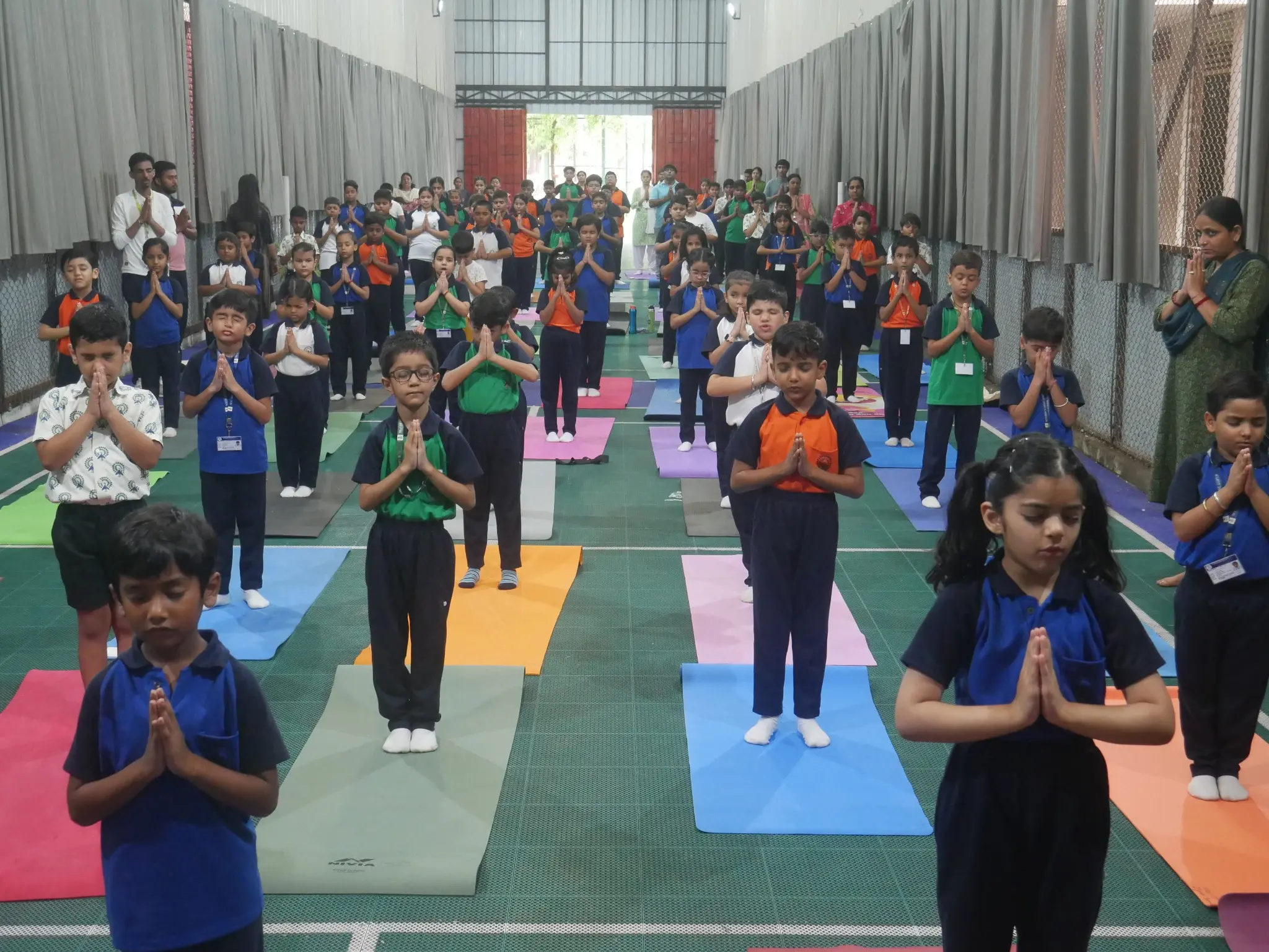Mayoor School Jaipur
Aug 23, 2024
How Mindfulness Practices Enhance Student Well-Being and Academic Achievement
Introduction
The integration of mindfulness practices in educational settings has garnered significant attention in recent years. At Mayoor School Jaipur, a leading school in Jaipur , offer numerous advantages for students, boosting both their well-being and academic success. This article delves into how mindfulness practices can enhance students' well-being and academic success, fostering a more positive and productive learning environment.
Understanding Mindfulness
Mindfulness involves paying close attention to one’s thoughts, emotions, and physical sensations without judgment. It encourages individuals to remain focused on the present moment, which helps reduce stress and enhance self-awareness.
Within an educational context, mindfulness practices can be smoothly integrated into daily routines, aiding students in managing stress, improving concentration, and building emotional resilience.
Benefits of Mindfulness for Student Well-Being
- Stress Reduction: Mindfulness practices have been shown to significantly lower stress levels among students. By engaging in mindfulness exercises, students learn to better manage anxiety and stress, leading to a more relaxed and peaceful state of mind.
- Emotional Regulation: Mindfulness helps students develop stronger emotional regulation skills, making them more aware of their emotions and enabling them to respond in a balanced and constructive manner. This reduces emotional outbursts and fosters a more harmonious classroom environment.
- Improved Focus and Concentration: Regular mindfulness practice enhances students’ ability to concentrate and maintain focus on tasks. This is particularly beneficial in an academic setting where sustained attention is crucial for learning and retaining information.
- Enhanced Self-Esteem: Mindfulness encourages self-reflection and self-acceptance. Students who practice mindfulness regularly tend to have higher self-esteem and a more positive self-image, which in turn boosts their confidence and motivation to succeed.
Academic Benefits of Mindfulness
- Better Academic Performance: Research indicates that students who engage in mindfulness practices tend to perform better academically. Improved focus, reduced stress, and better emotional regulation create a more conducive learning environment , allowing students to excel in their studies.
- Increased Creativity: Mindfulness stimulates creativity and innovative thinking. By fostering a state of open-mindedness and curiosity, students are more likely to think creatively and develop unique solutions to problems.
- Enhanced Memory and Retention: Mindfulness improves cognitive functions such as memory and retention. Students who regularly practice mindfulness can process and recall information more effectively, leading to better academic outcomes.
- Improved Teacher-Student Relationships: Mindfulness also benefits teachers by helping them manage stress and remain calm in the classroom. This creates a positive and supportive environment, enhancing teacher-student relationships and contributing to a more effective learning experience.
Also Read: Top Exam Revision Tips for Students
The Role of Parents in Supporting Mindfulness
- Encouraging Mindfulness at Home: Parents can support their children’s mindfulness practices by encouraging mindfulness exercises at home. Simple activities such as family meditation sessions or mindful breathing exercises can create a supportive environment for mindfulness.
- Modeling Mindfulness: Parents who practice mindfulness themselves serve as positive role models. By demonstrating mindfulness in their daily lives, parents can inspire their children to adopt similar practices.
- Creating a Calm Environment: A calm and peaceful home environment supports mindfulness practices. Parents can create designated spaces for mindfulness activities free from distractions to help their children practice mindfulness effectively.
Conclusion
At Mayoor School Jaipurone of the top schools in Jaipur, integrating mindfulness practices into the educational framework offers a holistic approach to student well-being and academic success. By reducing stress, improving focus, and promoting emotional regulation, mindfulness contributes to a positive and effective learning environment. Schools that prioritize mindfulness practices are likely to see significant improvements in student performance, behavior, and overall well-being. As mindfulness continues to gain recognition in education, its benefits will undoubtedly shape a brighter and more successful future for students.

